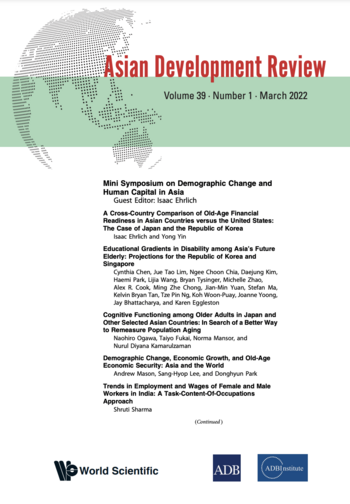Educational Gradients in Disability Among Asia’s Future Elderly: Projections for the Republic of Korea and Singapore
Educational Gradients in Disability Among Asia’s Future Elderly: Projections for the Republic of Korea and Singapore

The model was employed to compare projections of functional status and disability among future cohorts of older adults, including disparities in disability prevalence by educational attainment. The model also projects increasing disparities in the prevalence of activities-of-daily-living disability and other chronic diseases between those with low and high educational attainment.
Despite overall increases in educational attainment, all elderly, including those with a college degree, experience an increased burden of functional disability and chronic diseases because of survival to older ages. These increases have significant economic and social implications, including increased medical and long-term care expenditures, and an increased caregiver burden.
